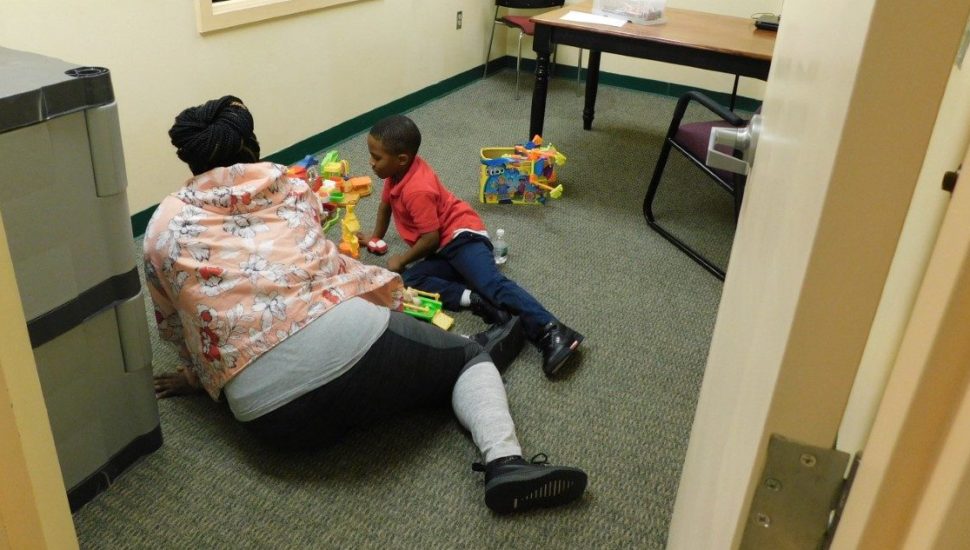The Power of Play: How Five Minutes a Day Can Change Your Parent-Child Relationship

 Children stuck at home during the pandemic are feeling stressed by changes in routine, but often have trouble expressing their feelings.
Children stuck at home during the pandemic are feeling stressed by changes in routine, but often have trouble expressing their feelings.
This leads to increasingly negative behaviors like crying, tantrums and not listening. That, in turn, leaves parents stressed and overwhelmed.
But there are strategies found in Parent Child Interaction Therapy (PCIT) you can use to break the cycle. PCIT is practiced at Child Guidance Resource Centers in Havertown. The therapy is intended for children ages 2 to 7.
One strategy or practice is “Special Time.” Just five minutes of Special Time a day with your child can:
- Help your child feel safe and calm;
- Teach you how to manage your child’s behavior with positive attention;
- Teach you how to communicate with your child if they have a short attention span;
- Teach you how to teach your child new things without frustration;
- Improve your child’s self-esteem;
- Improve your child’s social skills (like sharing).
To get started, pick a time and a timer. The basic rule of Special Time is to follow your child’s lead. So whether you are coloring, playing blocks, exploring playdough, or playing in your child’s room, you should follow these guidelines:
- DON’T: ask questions, give commands, use negative talk or criticism, or teach any specific lessons
- DO: Play! And while you are playing, work on 5 specific skills: praise, reflect, imitate, describe, and enjoy (PRIDE).
PRAISE:
- Give your child labeled, specific praises for positive behaviors. It’s important that your child knows you notice, appreciate and are proud of them for showing positive, appropriate behaviors.
- Specific praise helps build their self-esteem. The more you notice these behaviors, the more frequently they are going to occur. Try and provide a praise at least every 30 seconds during your special time practice.
REFLECT:
- A reflection is similar to a repetition or paraphrase of what your child is saying.
- Reflect your child’s appropriate talk. This helps your child to lead the conversation, and shows your child that you’re really listening to what he or she is saying.
- Example: if your child says, “Mommy I built a tower,” You might say, “You built a tower!” The more enthusiasm, the better!
IMITATE:
- Copy your child’s appropriate play and be in the same space as your child.
- Your children loves your attention! Imitation shows your approval of what your child is going, and makes the activity more fun.
DESCRIBE:
- Describe what you see your child doing to let them know you like and approve of what they are doing.
ENJOY:
- Enjoyment shows that you are happy to play with your child! The more smiles, enthusiasm, imagination, and playfulness the better. This makes this special time meaningful for both you and your child.
If your child is smiling during your time together, then you are doing something right.
Try and take even just one of these skills, and find some opportunities to practice that skill as much as you can.
Your kids likely won’t remember what COVID-19 was like, but the time that you spend with them and the lesson that they learn from your doing this time could impact them forever!
You can find out more about Parent Child Interactive Therapy by clicking here.
You can also find out more about Child Guidance Resource Centers by clicking here. The centers are open to families for telehealth appointments.
About the author: Lauren Hallinan, MS, LBS, LPC has worked at CGRC for the past six years. She is the supervisor of Extended Assessment Services in the SWP Office and is a clinical supervisor of PCIT across counties.
[lp-contribute]
Connect With Your Community
Subscribe to stay informed!
"*" indicates required fields
























![95000-1023_ACJ_BannerAd[1]](https://vista.today/wp-content/uploads/2023/03/95000-1023_ACJ_BannerAd1.jpg)























